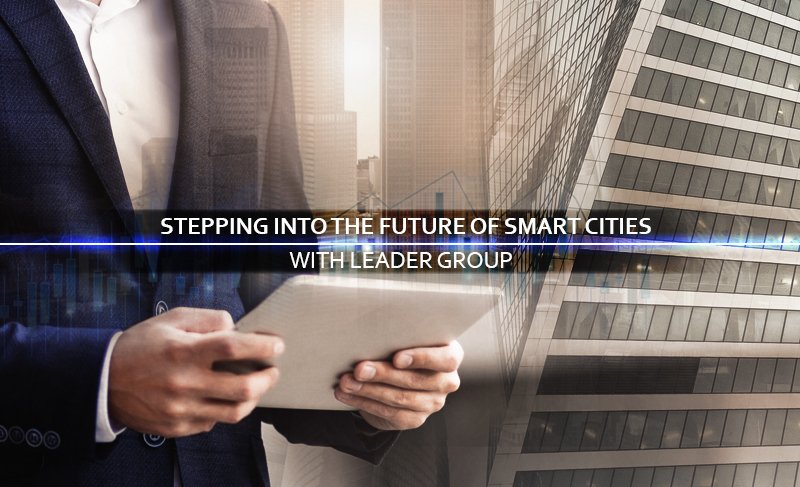
Stepping into the future of Smart Cities with Leader Group
“Smart Cities are a reality now. It is not only a digitized city with exclusive digital technologies but also an innovative, sustainable, and efficient living experience. Leader Group’s Smart City solutions transform cities into digitized cities and drive innovation, resilience, and prosperity.”
Cities are getting transformed into smart cities, the significance of sustainability is increasing massively, and innovation is thriving more than ever.
Call it the new way of living or the need of the hour. Still, nothing is denying that after the COVID-19 pandemic, the new era of Industry 4.0 has observed many transitions and converting a city into a smart city is one of them.
Organizations evolve into a new digital space as businesses change how they work.
Companies adopt the latest innovative emerging technologies to achieve their business goals and objectives, and governments across the nations are becoming more aware of the significance of smart cities.
However, such transformation into smart cities is not achieved overnight; instead, it takes an amalgamation of governments, corporates, and citizens to work in tandem and navigate a city into a smart city.
According to recent research, the global market value of a smart city will reach USD 870 Billion by 2026.
Factors such as the rise in internet penetration, the need for smarter cities, and the increased advent of emerging technologies such as AI, IoT, and Blockchain, are driving the growth of smart cities.
Furthermore, government bodies too are allocating significant investments for accelerating the smart cities’ projects, further pushing a town into a smart city.
Critical Elements to a Smart City: An amalgamation of Digital Data, Technology, and Society
Digital is the new normal, and it is evident that digital plays a vital role in attaining a smart city.
Data, Technology, and Society, when working together in tandem, achieve the goal of a Smart City more religiously.
1.Digital data
Digital data is the next big thing. Earlier decisions about a significant project used to be made based on intuition.
Still, now the times have changed, and decisions are made analyzing the data, which not only tells us about the previous trends but also provides us with a clear picture of what to expect in the days to come in the upcoming future.
2.Technology
Emerging technologies play a considerable role in transforming a city into a smart city.
Emerging technologies such as IoT uses connected sensors that aid the entire value chain of having a smart city on the go.
Moreover, it creates a mode for the corporates to attain their smart city goal more effectively with the real-time view of infrastructure projects.
3.Society
In terms of society, a community or a group of masses is used interchangeably to help governments achieve major projects quickly.
It is the community for whom any project is designed, and it is for their welfare that the projects are executed to add value to an all-new rich, sustainable, and efficient living experience.
A recent study suggests that after a decade of trial and error, municipal leaders have realized that smart-city strategies start with people, not technology, and hence, to achieve the smart city goal more efficiently, data and using technology are getting implemented in tandem to make better decisions and deliver a better quality of life.
Also, more comprehensive, real-time data allows organizations and government agencies to watch events as they unfold and make decisions to drive innovation, digitization, and resilience.
Furthermore, a research study suggests that by 2025, cities that utilize smart-mobility applications will cut commuting times by 15 to 20 percent on average.In contrast, in developing cities, as more grueling commutes, the improvement reaches as much as 20 to 30 minutes every day, making governments add more value to the benefits of a smart city.
Leader Group’s Smart city solutions is a comprehensive suite of digital tools and technologies that help cities achieve their goals of smart cities with its one-of-its-kind digitization approach along with an implementation of digital tools, and technologies, ensuring a digitally driven, rich, efficient, and sustainable living experience.
Conclusion
Digitization is the new normal. In Industry 4.0, organizations and corporates are taking all the required steps to make the journey of a city come to reality, transforming it into a smart city, which has been widely observed.
Leader Group’s Smart City solutions make this process simpler, robust, and achievable, bringing together corporates, government agencies, and the community to thrive more and achieve digitization.





